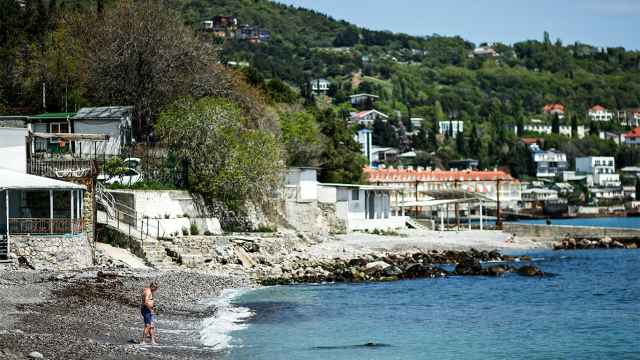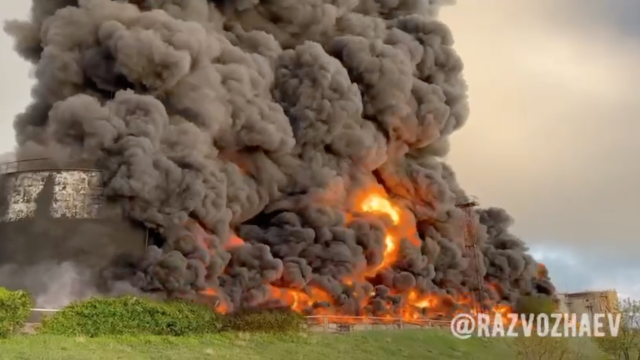The capital of Russian-annexed Crimea is facing a water shortage with enough supply to last 100 days, the Kommersant business daily reported Wednesday, citing regional and local officials.
Crimea received 85% of its water from Ukraine’s Dnieper River via the North Crimean Canal until 2014, when Russia annexed the peninsula and Ukrainian authorities blocked the canal. The three reservoirs supplying Simferopol are currently at one-third their capacity, the RBC news website reported.
If the city’s water consumption doesn’t change, Simferopol’s water supply will only last 90 to 100 days, Kommersant cited Crimean water management official Igor Vail as saying at a city administration meeting.
Simferopol will introduce water restrictions on residents and businesses starting Feb. 10, Elena Protsenko, the head of the city administration, wrote on her Facebook page. Water will be turned on in the mornings and evenings, with hot water turned off every day except Saturday and Sunday.
“The restrictions will not affect socially significant places: hospitals, schools, kindergartens, etc.,” Kommersant quoted Andrei Chernichenko, the head of information for Simferopol’s administration, as saying.
Viktor Tarasenko, the president of the Crimean Academy of Sciences, told Kommersant that Simferopol’s water shortage stems from a second consecutive winter with low snowfall as well as a dry spring, summer and fall last year.
“Bad luck with rainfall. Unfortunately, nothing substantial has come up in the past few years in terms of searching for and implementing new alternatives,” he said.
In January, Russian President Vladimir Putin criticized Crimean officials for failing to resolve the peninsula's water shortages.
A Message from The Moscow Times:
Dear readers,
We are facing unprecedented challenges. Russia's Prosecutor General's Office has designated The Moscow Times as an "undesirable" organization, criminalizing our work and putting our staff at risk of prosecution. This follows our earlier unjust labeling as a "foreign agent."
These actions are direct attempts to silence independent journalism in Russia. The authorities claim our work "discredits the decisions of the Russian leadership." We see things differently: we strive to provide accurate, unbiased reporting on Russia.
We, the journalists of The Moscow Times, refuse to be silenced. But to continue our work, we need your help.
Your support, no matter how small, makes a world of difference. If you can, please support us monthly starting from just $2. It's quick to set up, and every contribution makes a significant impact.
By supporting The Moscow Times, you're defending open, independent journalism in the face of repression. Thank you for standing with us.
Remind me later.






